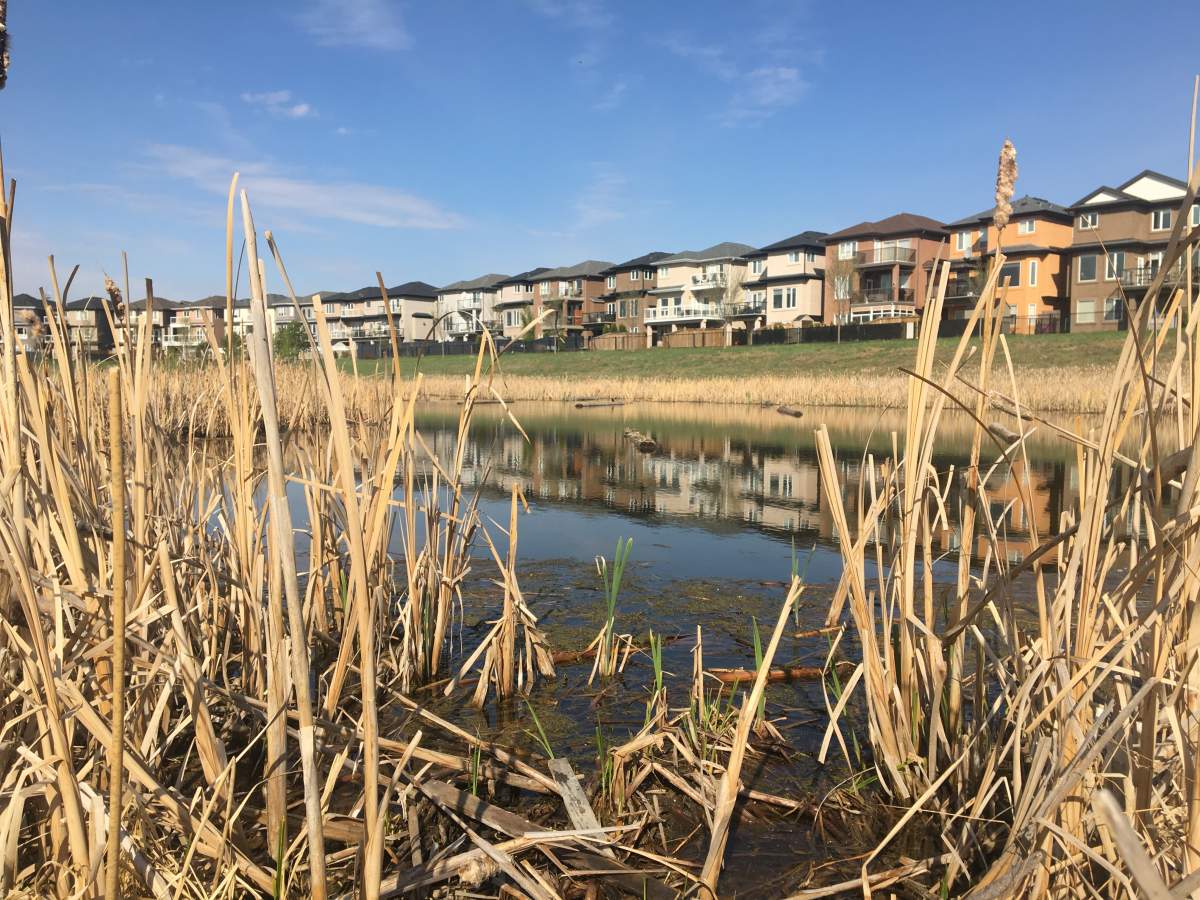It’s that time of year again. The snow has melted, the ground has thawed and summer is right around the corner. But with that also comes mosquitoes.

“We’re seeing the first wave of our newly emerged mosquitoes of the season,” Mike Jenkins, pest management coordinator with the City of Edmonton, said Tuesday.
At this time of the year, there are usually a diverse number of mosquito species buzzing around, Jenkins said.
“They’re quite aggressive, they’re out during the daytime, they’re well adapted for spring conditions when the nights are still cool,” he said. “We’re hearing lots of numbers of those, especially north of the city.”
There aren’t as many mosquitoes within Edmonton right now, Jenkins explained, due to the city’s early efforts to treat habitats where larvae develop. This includes ground crews targeting ravines, railroad tracks and industrial areas, along with roadside ditches where temporary water usually gathers.
Efforts are also being made by helicopter, targeting standing ponds both in and outside of the city.

Get breaking National news
“We’re not currently treating at the moment. We’re not seeing any new hatching occurring, that will all depend on the amount of precipitation we get.”
The summer mosquito forecast depends entirely on the amount of rain the city received, Jenkins explained. Lots of rain translates to more of the insects hatching.
With rain in the forecast later this week, Jenkins said the city will monitor the situation and treat if necessary.
Watch below: Meteorologist Jesse Beyer has the long-term weather forecast for the Edmonton area

Jenkins spoke to the media Tuesday near a north Edmonton stormwater pond, an environment where you’d typically see mosquitoes develop. However, he said efforts have been made over the past number of years to design the ponds in a way that actually combats the development of mosquitoes.
“Twenty, 30, even 40 years ago when they were designing these stormwater ponds, they didn’t take into account the ecological function that they would eventually have in these neighbourhoods. They were just designed for holding water,” he explained.
“They have no emergent vegetation, so there’s nowhere for fish to lay their eggs and harbour their young. There’s nowhere for the dragonflies to lay their eggs or anywhere for the nymphs to crawl up and get out of the water and emerge. So they have very low predator counts, low biodiversity.”
All of that combined leads to more mosquitoes, he said. But the newer ponds are built so they quickly develop a natural ecosystem function, Jenkins explained.
“They have shallow areas, there are varying depths in the pond and they get emergent vegetation and they quickly become habitats for things like dragonflies and fish and all these sorts of things. So you get very few mosquitoes in them,” he said.
Come June and July, Jenkins said 99.9 per cent of the mosquito species will be the typical pesky ankle-biters that are most active at dawn and dusk.








Comments
Want to discuss? Please read our Commenting Policy first.